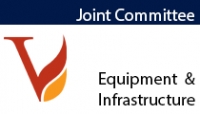Issue 11: December 2014
Quick snapshot of the priority issues and actions worked through at the most recent Joint Committee meeting between CFA and VFBV. (Meeting held 08/11/14)
BRIGADE OWNED VEHICLE INSURANCE
The committee is still actively pursuing this issue. If a vehicle is ‘written off”, CFA’s current practice is that insurance provides the brigade with the vehicle’s market value and it is up to the brigade to fund any difference in replacing the vehicle. VFBV have raised objections as this practice differs to CFA owned vehicles which are replaced with any cost difference between the replacement and original vehicle funded centrally. Whilst current CFA practice aligns with insurance best practice, it completely ignores the fact that CFA vehicles can’t simply be bought ‘off the shelf’. It is the committees view that if a brigade vehicle is written off CFA should do everything it can to support the brigade replace a vehicle as soon as possible and policy must acknowledge and cater for those situations where brigades can’t simply buy a comparative aged vehicle at the current market ‘value’. VFBV is advocating for CFA to arrange insurance based on pre-agreed replacement value, not market value. VFBV has provided advice to a draft paper being prepared for CFA ELT and is educating decision makers on the possible effects of the loss of brigade confidence in insurance that may have an impact on brigades willingness to releasing their vehicles to support outside their immediate area.
FCV & TRANSPORT VEHICLE WEIGHT ISSUES
The committee has been in discussions with CFA for some time trying to resolve weight issues with operational light vehicles (those under a 4.5 GVM). Vehicles over their GVM legally expose the driver, owner (if still using a brigade nominee) and CFA in the event of a serious or fatal collision.
CFA is currently embarking on a program to arrange for the inspection & weighing of all operational transport vehicles (FCV’s & cars etc) to record and identify any overweight vehicles. Those vehicles overweight will either be restricted in passenger capacity or have to remove items of stowage to bring them under GVM.
CFA has agreed to the committee’s request to publish & keep current a list of most common vehicles bought by brigades and their GVM, tare weight and available payload. We need to educate brigades on the low available weight of some vehicles to help them make informed decisions before purchasing. Weight loading chart & weight calculation template will be available via CFA Fleet services and VFBV will also publish on our website. Promote this information to any brigade considering replacing or purchasing a BOV.
TANKER RESTRICTING WASHER RETROFIT PROGRAM
The committee was provided a briefing on CFA’s restricting washer retrofit program. The program is in response to a safety issue related to the jet reaction associated with sudden changes in pressure when people are operating on the rear deck, when the front monitor is being used. It follows a serious accident last fire season where a firefighter was thrown off the back of a tanker and hit by the back wheels due to a sudden high pressure change on a rear deck hose.
The washers will reduce tanker rear deck deliveries to 300 l/min and will only be done on Tankers that have 900 l/min pumps, front monitors and cabin pressure controls. Concern has been raised that a training issue is being solved with a mechanical solution that may restrict firefighting capability of the fleet, however CFA have also pointed out that common branches operated on the rear deck are rarely designed to operate at more than 300 l/min.
CFA has agreed to work with delegates to look at alternatives, such as pressure relief valves and different hoses for use on the rear decks of tankers, and to investigate effects of reduced pressure more closely.
As CFA has identified this as a serious safety issue – the retrofit program will continue whilst alternatives are being investigated.
 Member Services
Member Services 
